
Nathan Congdon, MD, highlights a recent study showing how virtual mentor-mentee relationships through Orbis' free telemedicine and e-learning platform can significantly enhance care.

Nathan Congdon, MD, highlights a recent study showing how virtual mentor-mentee relationships through Orbis' free telemedicine and e-learning platform can significantly enhance care.

Omar Salamanca, MD, staff ophthalmologist, Orbis Flying Eye Hospital, discusses Orbis's tailored glaucoma training programs, which focus on hands-on surgical skills, early detection, telemedicine, and personalized follow-up care, helping underserved regions improve glaucoma management and blindness prevention.
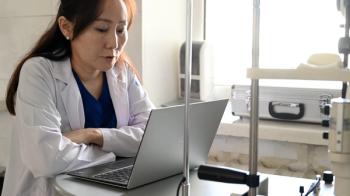
According to the organization, professionals from almost every country and territory across the globe—including nearly 15% of the world's ophthalmologists—have trained on the platform.

Cataract simulation platform uses virtual reality to train ophthalmologists

NIDEK Co. Ltd. has made a financial donation to Orbis International to support Orbis’s artificial intelligence (AI)-based screening services in Vietnam.
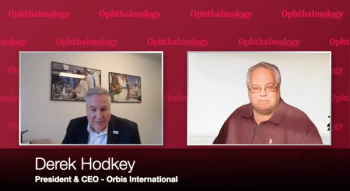
David Hutton of Ophthalmology Times talks with Derek Hodkey, CEO and president of Orbis International, about 2023 in review as well as plans for the company moving into 2024.
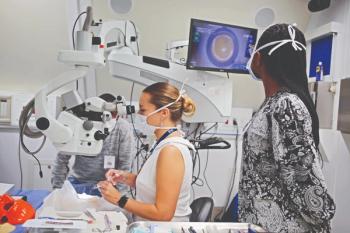
Orbis advances cataract surgery training in low-resource areas with technology

A study of the course was conducted in Vietnam, and showed participant scores doubled following the online course, to a level like local ophthalmologists.
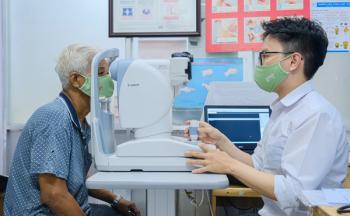
Community-based eye care is one of Orbis’s top priorities in the country.
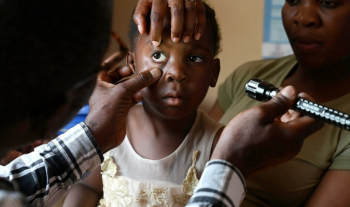
The Orbis Flying Eye Hospital will return to Zambia for a 3-week training project in Lusaka coinciding with World Sight Day on October 12.
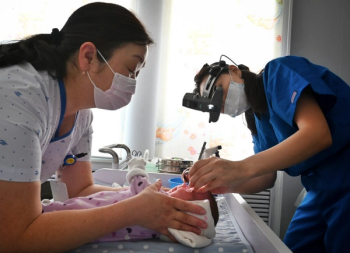
According to the companies, the partnership will roll out a proprietary system that has earned FDA breakthrough designation, one of the few ophthalmic devices to achieve this status in almost a decade.

Research from Orbis International analyzes the overall wellbeing of children with common childhood vision problems.

The non-profit will partner with the imaging company to prevent blindness and fund new retinoblastoma research.

According to the company, the tool provides free access to training and mentors for eye care professionals in areas with the greatest need, and the new Cybersight mobile app expands access for eye care professionals through offline functionality.

According to Orbis International, the technology proves to be a practical solution in low-resource communities for tackling the leading cause of vision loss among working-age adults.

Orbis International physician spotlights the latest trends for cataract surgery training.

Maria Montero, MD, of Orbis sits down with David Hutton of Ophthalmology Times, to discuss technology and training for cataract surgery, including simulation, and telementoring.
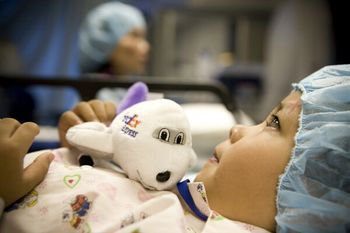
According to the organization, the trip marks the 12th training project in Vietnam for the Flying Eye Hospital, including one virtual project on Cybersight, Orbis's telemedicine platform.

Technology offers accessibility, scalability to countries where care is needed the most.
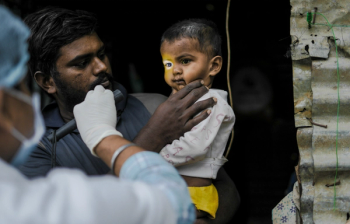
The vision care company is joining forces with the global nonprofit to fight avoidable blindness around the world.

Derek Hodkey, president and CEO of Orbis International, discusses key achievements for the company and its Flying Eye Hospital in 2022 and offers his outlook for 2023.

When it is not on a mission, the Orbis Flying Eye Hospital MD-10 aircraft often is situated at an airport where the fully accredited teaching facility is put to use as a mobile simulation center to train ophthalmologists from around the world in some of the latest sight-saving techniques.
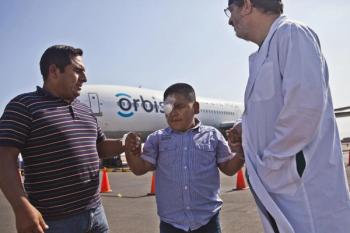
The training will overlap with World Sight Day, which spotlights the importance of eye care. Orbis's clinical staff and medical experts along with UC Davis Medical Health physicians and staff will share their knowledge with nearly 50 ophthalmologists, ophthalmology residents, nurses, and biomedical engineers from Bolivia, Chile, and Peru.
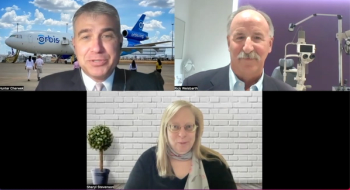
After a brief hiatus during the pandemic, the Flying Eye Hospital program returns.

Two studies conducted in collaboration with Orbis International explore how providing free glasses to children improves their ability to learn in school and that addressing visual impairment in children can alleviate depression and anxiety.

A study by Orbis International found that children with myopia experienced significantly higher levels of depression and anxiety than their peers without vision impairment.
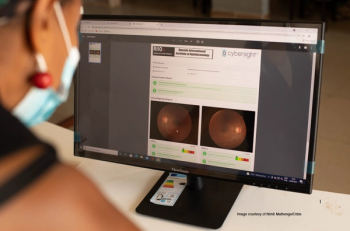
The research from eye care nonprofit Orbis International focuses on diabetic retinopathy in Rwanda, where associated vision complications from diabetes are growing.
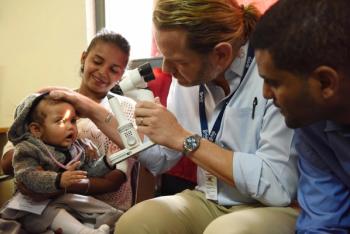
The 10-week Flying Eye Hospital program will offer courses focusing on advanced glaucoma and simulation lectures for residents.

Orbis' Nicolas Jaccard, PhD, principal AI architect, discusses the impact that AI can have on health care, including current applications for AI in glaucoma, the challenges of acceptance of AI in clinical settings, how AI has helped with the diagnosis of glaucoma, and the vision for the future of AI in glaucoma and eye care in general.

Orbis International celebrates 40 years of innovation this year, beginning in 1982 with their iconic flying eye hospital. Since their start, Orbis has continued their innovation, working to achieve sustainable and scalable impact in the countries where they work. Doris Macharia, MD, senior vice president of global programs with Orbis, talks with Ophthalmology Times' Sheryl Stevenson, reflecting on the last 40 years and what's to come.